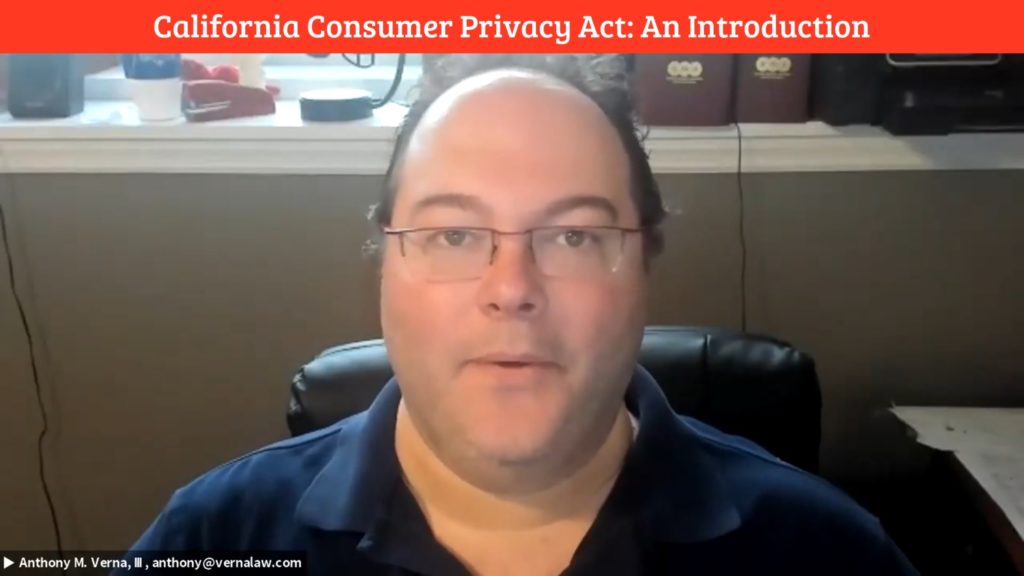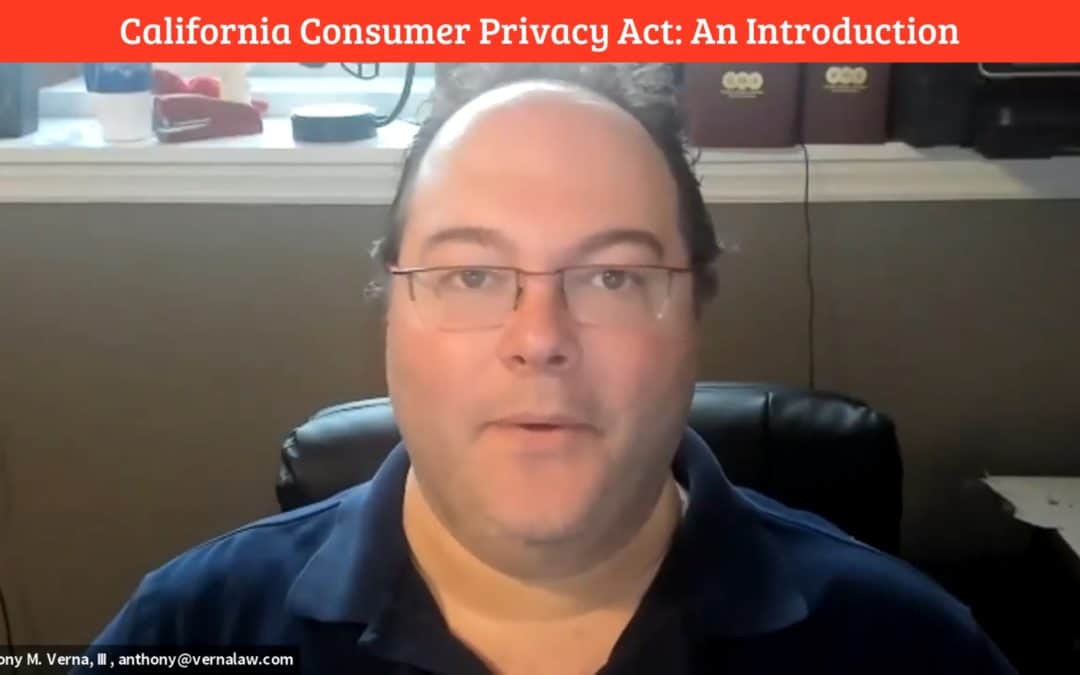Podcast (video): Play in new window | Download

Hi, I’m Anthony Verna, managing partner of Verna Law, but you already knew that. That’s why you’re here.
One of the perils of advertising law is the fact that there are 50 States and 50 States also means 50 different regulatory schemes. In this particular case, let’s take a look at California’s brand-new California Consumer Privacy Act.
Number one, if you’re not doing business in California, guess what? California thinks that you’re doing business in California because chances are your business has a website and yes, that’s California’s definition of doing business in California. So you have to look at the California Consumer Privacy Act in case anybody from California happens to step over your website or well actually picks up the phone and calls for business and then buys your products. But here’s the key. The brand-new statute only applies:
- If your business has a revenue in excess of $25 million gross revenue to your business,
- buys or sells personal information from 50,000 or more consumers or households or
- earns more than half of its annual revenue from selling the consumers’ personal information.
If none of those apply to you, then the CCPA does not apply to your business. If one of those three conditions applies to you, then the CCPA applies to your business. Now what are some of the responsibilities under the CCPA? One, your business must implement processes to obtain parental or guardian consent for minors under 13 years. And the affirmative consent of minors between 13 and 16 years to data sharing. For purposes of the CCPA, there must be a link on your main page and it must say, “Do not sell my personal information.” And when somebody clicks on that link, that user must have a page to insert information to opt out of the sale of any personal information. Your business must designate methods for submitting data access request, including at a minimum – atoll free number. Yes, if you do business in California, you must have a toll free number if the CCPA, applies to you so that somebody can call you without charge to ask about the data and information for that consumer.
You must update your privacy policies with newly required information, including a description of California residents rights, which is exactly what I’m saying to you here. And then you must avoid requesting opt-in consent for 18 months after a California resident opt out. Again, the CCPA is new. It applies to those the listed above.
Again, California always believes that you’re doing business in California if your business has a website. So it’s a part of the sticky thorn of advertising law.
Certainly, we try to help our clients avoid any particular problems. I mean, Anthony Verna managing partner Verna law, where we focus on IP and advertising law. Send me an email at anthony@vernalaw.com. Thank you.


Recent Comments